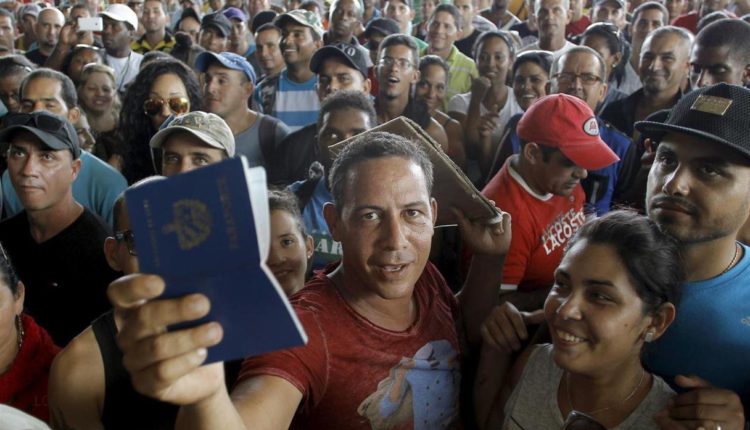
Emigration and the Cuban Constitution
HAVANA – In what marks a before and after in Cuban migration policy, it was announced last week that residents who live abroad will be able to participate in the consultation process regarding the future Constitution of the country.
Since 1978, the Cuban government has promoted meetings with groups of emigrants to discuss issues that concern them specifically. Decisions covering all emigration have also been made, such as the authorization of visits in 1979, or part of it, such as the 2013 immigration reform, which modified the status of migrants as of that date. However, for the first time a decision is made that includes all emigrants without distinction and is related to essential issues of the entire nation, as is the case of the Constitution.
This gesture has an enormous political value, since it reflects the will of the Cuban State to connect the emigrants much more closely with life inside the country. But it also establishes legal precedents, since rights are recognized in fundamental matters, which opens the way for them to influence or be recognized in the legal regulations that are adopted in the future.
It is clear that each person’s recommendation will be not be included in the constitutional text simply because they participated, but that is the same case for Cubans who live on the island. More importantly is the fact that by equating one and all with the right, a step towards inclusion has been taken that will be hard to take back.
The number of emigrants who participate will be important, but internally, the most relevant will be the quality of the analyzes and proposals. In any case, once the process is finished, there will be a material of incalculable wealth to understand the meeting points of all Cubans, no matter where they live, as well as the policies that best suit their criteria and interests. It is a step towards the perfection of democracy that benefits all of us.
Although this decision of the Cuban government reflects a majority national consensus, expressed in different ways both in Cuba and abroad, it is still a courageous decision, since we are not talking about unanimous support for gestures like this one.
The existence of a very active Cuban-American ultra-right against any agreement with Cuba and fueled by the permanence of U.S. policies aimed at continuing to use emigration as the social base of the counterrevolution, as well as the existence of a minority, but influential nucleus of emigrants with a confrontational ideology, generates similar reactions in sectors of Cuban society, who have a not insignificant weight in the national political debate.
No Constitution, on its own, ensures the proper functioning of the legal structure of a country. It is a process that includes the design of complementary laws that guarantee not only the letter but the constitutional spirit, as well as its just application in practice.
The constitutional debate that has begun in Cuba is only a first step in the complex process of broadening the consensus that the nation requires for the future. What is transcendent, no matter the obstacles that appear on the road, is that emigration has been added as part of this future and that implies the growth of the Cuban homeland.

